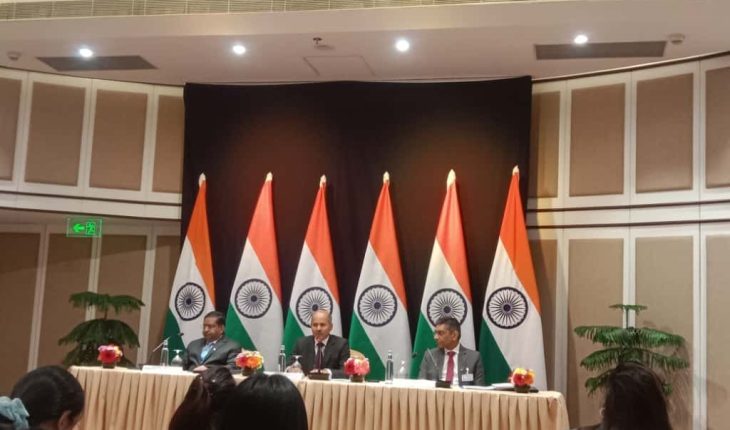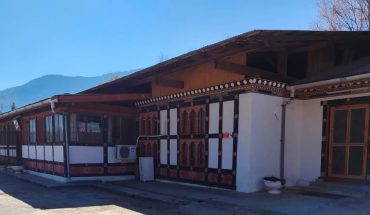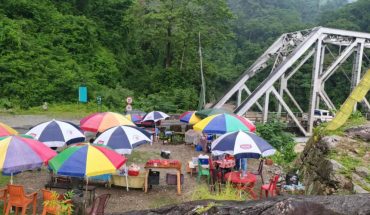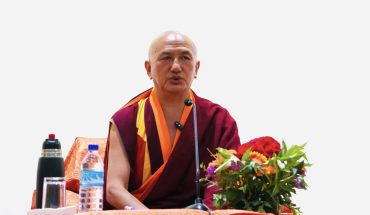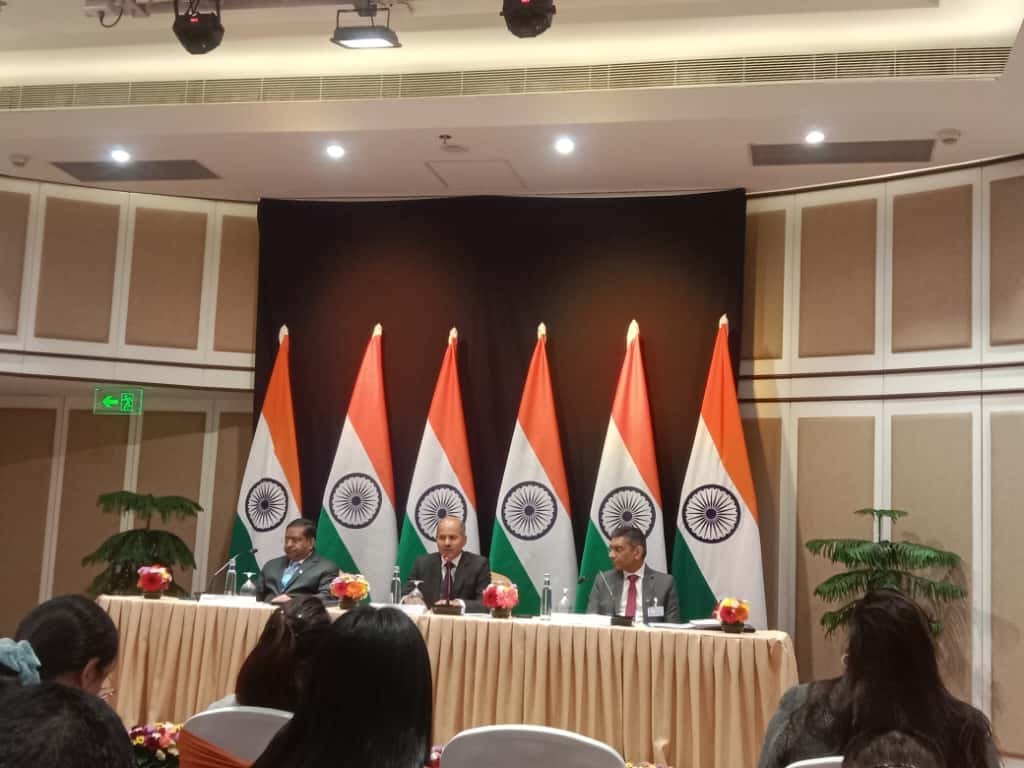
DAWA ZANGMO | Thimphu
Bhutan and India have expanded their longstanding partnership with the signing of new memorandums of understanding (MoUs) in renewable energy, healthcare, and mental health, alongside significant financial commitments and connectivity projects announced during the state visit of India’s Prime Minister Narendra Modi.
Prime Minister Modi declared that India will extend a Nu 40 billion line of credit to Bhutan, a facility intended to support new energy initiatives in the country.
The announcement was followed by a series of agreements that include the allocation of land in Varanasi for the construction of a Bhutanese temple, as well as the establishment of an integrated immigration checkpoint at Hatisar near Gelephu to enhance cross-border movement.
India’s Ambassador to Bhutan, Sandeep Arya, told at a press briefing that the new immigration point would play an essential role for business people, investors, and travellers, particularly in relation to the ongoing development of the Gelephu Mindfulness City.
According to him, the checkpoint is expected to become a major facilitator of mobility and economic interaction between the two nations.
During the visit, PM Modi also confirmed that India would provide land for what will become the third Bhutanese Buddhist temple in Varanasi. This decision follows a formal request made earlier by the Royal Government of Bhutan and is aimed at strengthening cultural and spiritual ties between the two countries.
Ambassador Arya further elaborated that the Nu 40 billion credit line is specifically earmarked to advance Bhutan’s energy related projects. These initiatives are intended to complement the broader efforts undertaken by both nations to expand their cooperation in new and emerging sectors.
As part of these efforts, Bhutan and India exchanged three MoUs dedicated to renewable energy, mental health, and the health sector, with the intention of reinforcing bilateral collaboration across these areas.
A separate MoU was also signed between The PEMA Secretariat and India’s National Institute of Mental Health and Neurosciences, laying the foundation for structured partnership in mental health services.
According to Ambassador Arya, the MoU on mental health will support joint endeavours such as professional training, development of mental health programmes within Bhutan, and collaborative research aimed at improving the delivery of services.
He noted that such cooperation would contribute to strengthening Bhutan’s overall capacity in mental health care.
Ambassador Arya also highlighted that leaders from both sides discussed the pivotal role of connectivity in promoting shared prosperity and creating new opportunities.
These discussions centred on enhancing transport links through railway and road networks, including proposed railway routes connecting Samtse to Banarhat and Gelephu to Kokrajhar.
The MoU in renewable energy seeks to formalise cooperation in various areas including solar and wind energy, biomass, green hydrogen, energy storage, and capability development.
Ambassador Arya described the agreement as a substantive framework through which Bhutan and India will jointly conceive and implement energy-related projects.
Meanwhile, the health sector MoU aims to deepen collaboration in several domains such as pharmaceuticals, maternal and child healthcare, diagnostics, communicable and non- communicable diseases, traditional medicine, and digital health innovations like telemedicine.
The agreement also provides for joint research efforts, technical exchanges, and the professional development of healthcare workers.
Ambassador Arya stated that the connectivity projects, many of which are expected to commence construction soon, are key to enabling Bhutan to access the Indian market and to establish an alternative transport corridor.
He emphasised that these initiatives are designed to strengthen the foundation of economic integration between the two countries.
Munu Mahawar, Additional Secretary (North) at India’s Ministry of External Affairs, characterized the railway initiative as a major project estimated to cost more than Nu 40 billion.
He noted that the proposal would mark the establishment of Bhutan’s first rail link and confirmed that India would fully finance the initiative.
Munu Mahawar added that the project has been given the highest priority by the Indian government to ensure timely delivery, with a joint project steering committee already constituted and preparing for its inaugural meeting.
Mahawar further explained that the railway line would provide Bhutan with access to India’s extensive rail network. This connection, he said, would allow Bhutan to transport goods more effectively and reach larger markets both within India and internationally.
During the visit, His Majesty the King and Prime Minister Modi jointly inaugurated the 1,020 MW Punatsangchhu-II Hydroelectric Project. The event took place in the presence of sacred relics of Lord Buddha, underscoring the spiritual significance of the occasion.
The project, developed through a bilateral agreement, enhances Bhutan’s electricity generation capacity by 40 percent. The additional power is expected to supply both Bhutan and India and is regarded as a major milestone in the two countries’ long-standing energy partnership.
Together, these agreements and announcements underline the continued commitment of Bhutan and India to advance cooperation across key sectors ranging from infrastructure and renewable energy to cultural ties and mental health while strengthening economic interdependence and regional connectivity.

